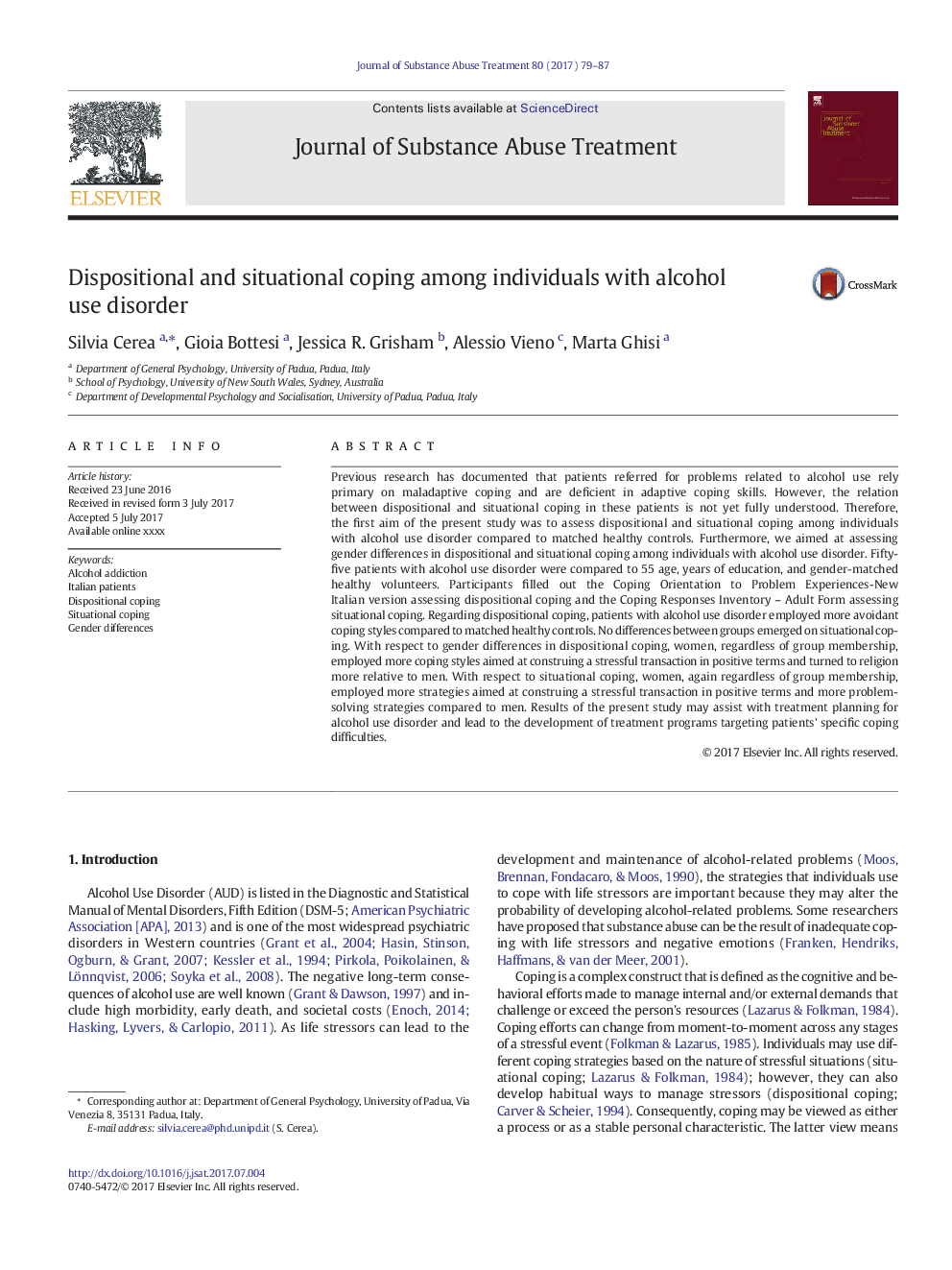ترجمه فارسی عنوان مقاله
مقابله درونی و موقعیتی در افراد مبتلا به اختلال مصرف الکل
عنوان انگلیسی
Dispositional and situational coping among individuals with alcohol use disorder
| کد مقاله | سال انتشار | تعداد صفحات مقاله انگلیسی |
|---|---|---|
| 161551 | 2017 | 9 صفحه PDF |
منبع

Publisher : Elsevier - Science Direct (الزویر - ساینس دایرکت)
Journal : Journal of Substance Abuse Treatment, Volume 80, September 2017, Pages 79-87
ترجمه کلمات کلیدی
اعتیاد به الکل، بیماران ایتالیایی، مقابله درونی مقابله وضعیتی، تفاوت های جنسیتی،
کلمات کلیدی انگلیسی
Alcohol addiction; Italian patients; Dispositional coping; Situational coping; Gender differences;

